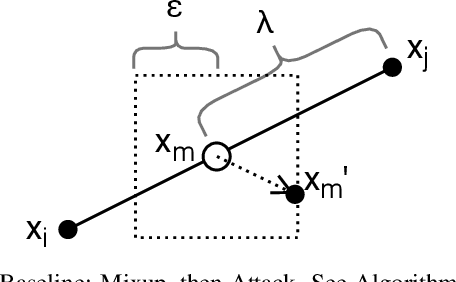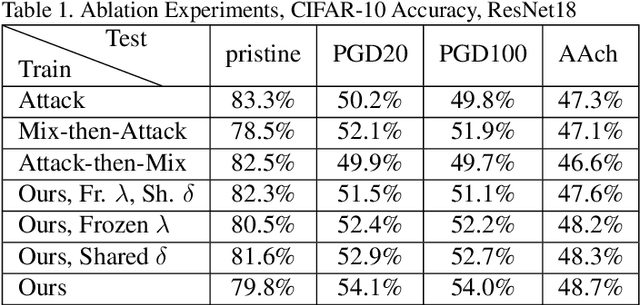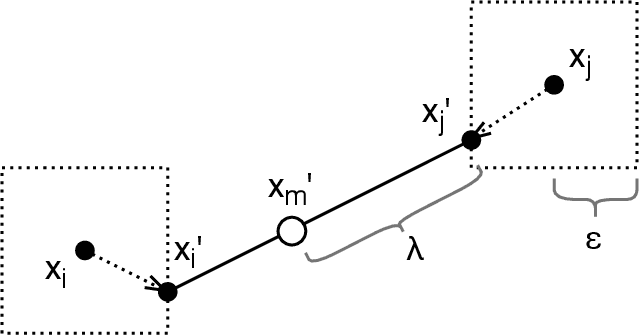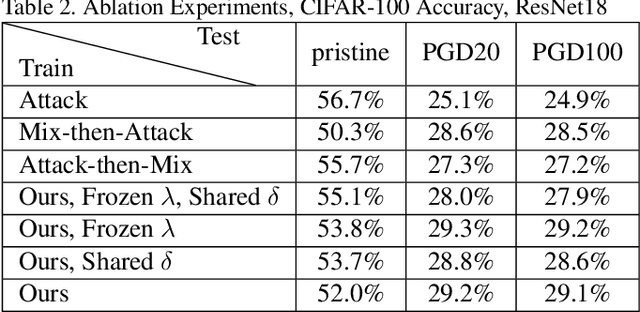Adversarially Optimized Mixup for Robust Classification
Paper and Code
Mar 22, 2021



Mixup is a procedure for data augmentation that trains networks to make smoothly interpolated predictions between datapoints. Adversarial training is a strong form of data augmentation that optimizes for worst-case predictions in a compact space around each data-point, resulting in neural networks that make much more robust predictions. In this paper, we bring these ideas together by adversarially probing the space between datapoints, using projected gradient descent (PGD). The fundamental approach in this work is to leverage backpropagation through the mixup interpolation during training to optimize for places where the network makes unsmooth and incongruous predictions. Additionally, we also explore several modifications and nuances, like optimization of the mixup ratio and geometrical label assignment, and discuss their impact on enhancing network robustness. Through these ideas, we have been able to train networks that robustly generalize better; experiments on CIFAR-10 and CIFAR-100 demonstrate consistent improvements in accuracy against strong adversaries, including the recent strong ensemble attack AutoAttack. Our source code would be released for reproducibility.
 Add to Chrome
Add to Chrome Add to Firefox
Add to Firefox Add to Edge
Add to Edge